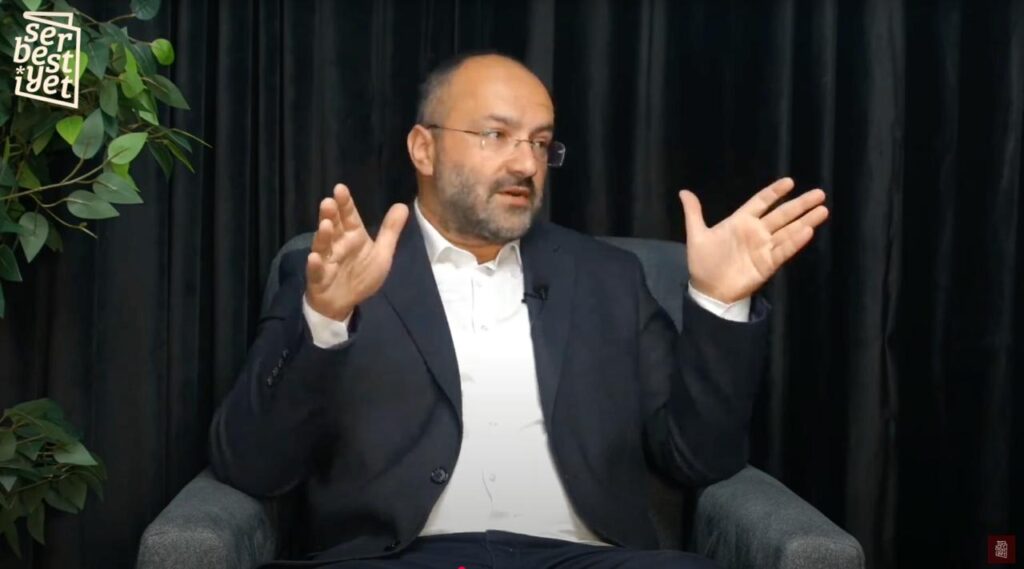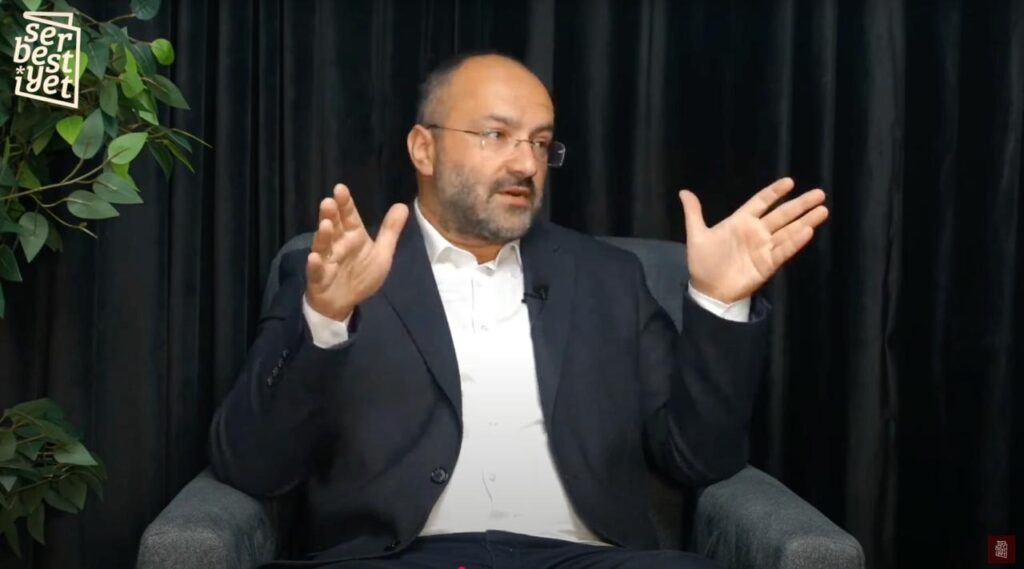
Turkistan Times, Istanbul – October 16, 2025: Prominent Turkish journalist and author Taha Kılınç conducted a covert visit to East Turkistan, a region under strict Chinese government control, and has published his book titled “In the Footsteps of a Lost Geography – An East Turkistan Travelogue.” The book details the severe oppression and shocking realities faced by the Uyghurs. In a special interview with the Serbestiyet newspaper, he revealed that he has faced diplomatic pressure from the Beijing government because of his book.

Sharing details of his visit, Taha Kılınç stated that he entered East Turkistan in June of last year via the Kazakhstan border and noted that his eight-day journey was fundamentally different from the propaganda-style tours controlled by the Chinese government. His goal was to gather on-the-ground evidence of the repressive policies that the international community has condemned as “genocide” and to convey the true situation of the Uyghur people to the world.
According to Kılınç, one of the most blatant manifestations of religious oppression in the region is the state of the mosques. He reported that many mosques, portrayed in Chinese propaganda as “open for worship,” have in reality been converted into museums, bars, cafes, and even hotels. He said, “Inside Kashgar’s historic Id Kah Mosque, the prayer areas have been cordoned off with tape, turning it entirely into a museum. I witnessed elderly Uyghurs in a mosque courtyard being forced to pledge an oath of loyalty to the state under the Chinese flag.”
During his visit, Kılınç said he deeply felt the intense surveillance and atmosphere of fear in the daily lives of Uyghurs. He mentioned not hearing the call to prayer (adhan) even once during his eight-day trip and being prevented from entering mosques at prayer times under various pretexts. The absence of young and middle-aged men in cities like Yarkent, with only women, children, and the elderly seen on the streets, further strengthened the evidence of “concentration camps.” The extent of the region’s oppression is demonstrated by practices such as fitting household items like knives with QR codes and registering each knife to the family’s census, filling city streets with high-definition cameras every 10-15 meters, and even having highways pass directly through police stations.
Kılınç emphasized that the Uyghurs’ contact with the outside world has been completely severed, stating that they are afraid to even return a simple greeting. He cited an example from Turkish Foreign Minister Hakan Fidan’s visit, where a Uyghur mother, when greeted with “Assalamu Alaykum” (Peace be upon you), could not bring herself to reply with the traditional “Wa Alaykum Assalam” (And upon you be peace), instead only saying “Yaxshimusiz” (How are you?). Kılınç noted that this illustrates the immense psychological pressure in the region.
In conclusion, Taha Kılınç’s book serves as a powerful rebuttal to China’s propaganda and holds great significance as a vivid and crucial first-hand testimony from the ground about the severe oppression, cultural genocide, and crimes against humanity faced by the Uyghur people in East Turkistan.